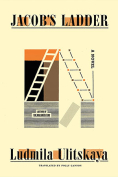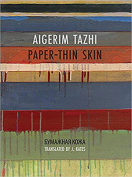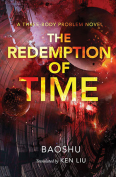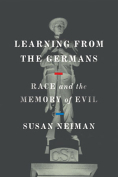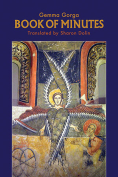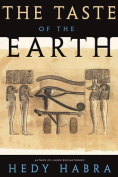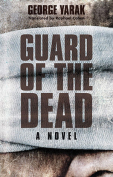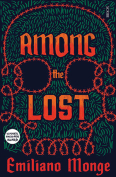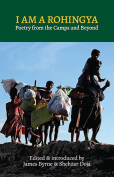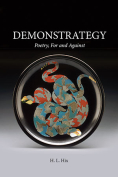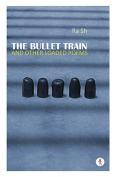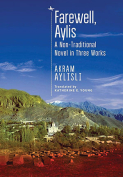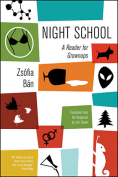Guard of the Dead by George Yarak
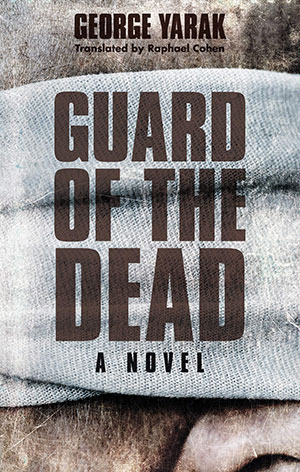 Cairo. Hoopoe Press. 2019. 269 pages.
Cairo. Hoopoe Press. 2019. 269 pages.
It is easy to fall in love with Beirut—the blue Mediterranean shimmers in the evening and the joie de vivre of the Lebanese charms visitors. But, as one of our Lebanese friends commented five or six years ago, “The cracks are not so far below the surface.” Born in 1958, journalist and novelist George Yarak is old enough to have experienced the civil war caused by the sectarian fissures in Lebanese society.
His novel Guard of the Dead is a psychological tale that gives us a disturbing picture of the underbelly of war-torn Beirut in the late 1970s. The naïve narrator, Abir, a hunted man, takes us on a harrowing tour: the thuggish, violent world of the militias; the depravity of the nightclubs; the prevalent recurrence of coincidental and intended death; the corruption within a hospital and the grisly details of dismembered corpses in a morgue. The novel is a blend of roman à clef and dystopian fable with thriller—and is told by an observant, perceptive narrator and propelled by a tight plot. Guard of the Dead was shortlisted for the International Prize in Arabic Fiction. It certainly deserved this recognition.
Other recent novels set in Iraq—like Frankenstein in Baghdad, by Ahmed Saadawi, and The Corpse Washer, by Sinan Antoon—have dealt with similar issues of sectarian violence, war, dismembered corpses, and honorable burial. Yarak’s narrator, Abir, does not find refuge in black humor, like the narrator of Sadaawi’s novel—for Yarak’s narrator, the only light seems to come from the friendship and camaraderie of other soldiers and a fleeting affair with a friend at work.
One of the novel’s strengths is the first-person narrator, haunted by trauma and besieged by suspicion and paranoia. The novel begins when Abir finds a wounded man in a garbage dump, his face covered with blood. Later, he learns that a gang from an unnamed political party wanted to take revenge on a teacher and ended up murdering a man. Afraid that he will be implicated in the murder, he flees to Beirut. In desperate need of a job, he joins a militia, and because he is a good shot, he is assigned the job of sniper. Yarak does not mention particular sectarian groups or specific events of the war but leaves that vague—perhaps underscoring that one battle is like another, just as one sectarian group behaves like all the rest. Throughout the novel, people are not named, either, but go by their nicknames, which are often ironic. The names are masks, but people are also masked throughout the novel—identity is not fixed. Abir’s nickname in the militia is “Ittris,” which is a male plover, while he is nicknamed “guard of the dead” when he works in the morgue.
Despite the fact that Abir is a sniper, he is not an aggressive, nasty character. Instead of killing people randomly, Abir shoots at signs. Once he witnesses the robbery and murder of a jeweler, he realizes the operation has nothing to do with military orders. Later, he goes along to a nightclub as an adventure but is shocked by the depraved behavior of Domino, another strongman. Abir is not involved in the action at the nightclub but only observes this jungle of bullies, thugs, and strongmen. He is a sympathetic young kid, curious about the world around him, but he does not try to counter or stop violence either. In no way does Yarak glamorize the world of the militias, but he does describe the strongmen and the ugly sideshows that go along with their military operations: looting, rape, gambling, addiction and mafia-style murders.
For Abir, the only relief in this grim atmosphere is his friendship with Azizi, who is a thoughtful, self-taught man who reads political and history books, listens to music, and prepares leisurely meals in his simple room. Azizi has recorded “secrets” of the militia in a notebook—and Abir’s name is mentioned. After Azizi’s murder, Abir flees and goes underground, fearful that he will be next. At first, the hospital run by nuns seems an ideal place to hide, but it is no haven from terror, paranoia, and corruption either. Like an onion, the layers of corruption are revealed, day by day: negligent doctors kill patients; casual, sleazy affairs are rife; employees defraud the hospital with scams, pilfer petty cash from the drawer, and scavenge valuables off of corpses. Abir finds himself sympathizing with the corpses, especially of ordinary and poor people—death is the great equalizer.
Yarak crafts a poignant, if not kind, end to the book as Abir’s ultimate fate echoes the events that set it into motion.
Gretchen McCullough
American University in Cairo


